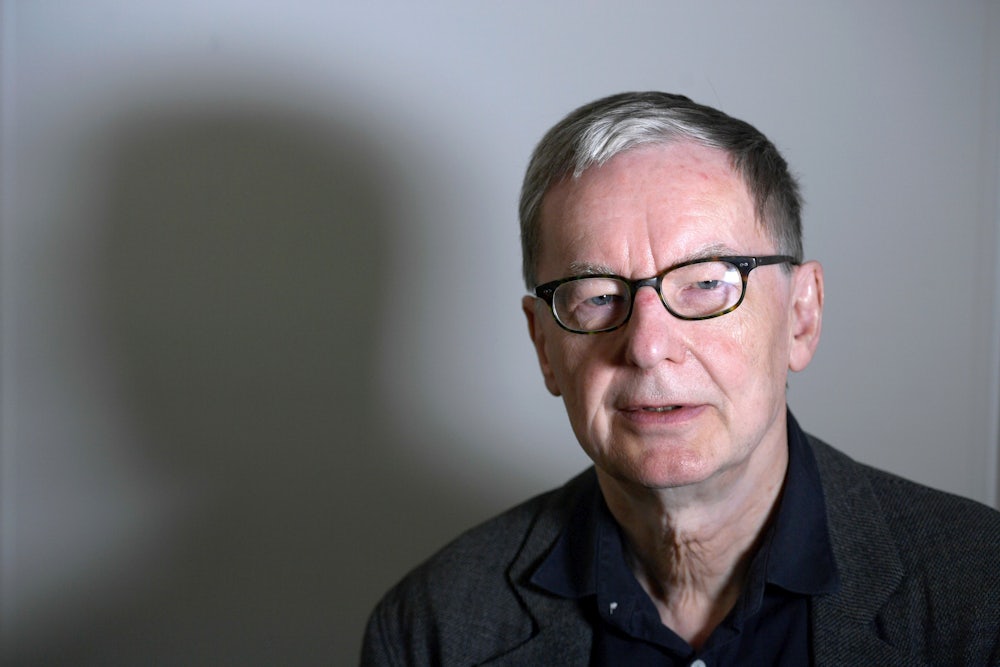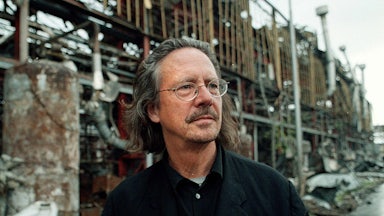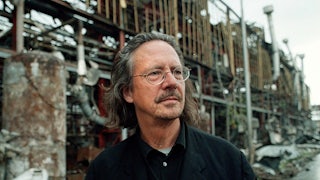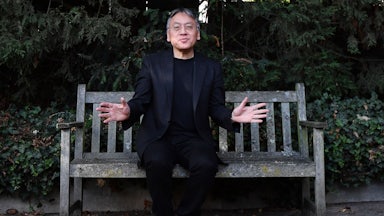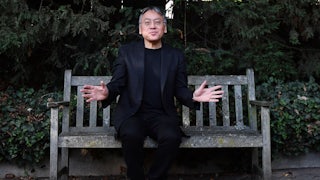On Thursday, the Nobel Prize in literature will be awarded for the 118th time—and for the fourth since it was suspended in 2017 amid a rash of scandals involving sexual assault and gambling. The Swedish Academy, the august body that awards the prize, has since undergone a number of changes; it has only 18 members, but seven have joined in the last three years.
The prize, too, is still the subject of controversy. Only 16 women have won it in its history; a Black African writer has not won it since 1986. The decision to award the 2019 prize to Peter Handke, who has been accused of genocide denial, received ferocious criticism. Although there are perennial promises that the academy’s perspective will take on a more global lens after more than a century of Eurocentrism, seven of the last 10 laureates have come from Europe.
And yet the Nobel Prize remains the most prestigious cultural award in the world. It is, moreover, in the midst of something of a rebrand; its decisions to honor the Polish novelist Olga Tokarczuk and the American poet Louise Glück were widely applauded. This iteration of the prize is clearly different from its pre-scandal version, and yet it’s still in the midst of a transformation. I spoke to Anders Olsson, a Swedish writer and literary critic who is the current chair of the Swedish Academy’s Nobel Prize Committee about the changes it has undergone in recent years; the importance of making the prize global, rather than European; and the controversy over Handke’s win.
This will be the fourth Nobel Prize in literature awarded since it was suspended in 2017. Do you think the Swedish Academy is back on track now?
Well, reputation is not a thing that I could comment on as a member of the academy because reputation is somewhere else, always. But I think that we have found stability in our work in the academy, and we are continuing our work as before the crisis. We feel that we do not have any crisis anymore. It is a good feeling and atmosphere in the academy right now. We have a full academy, which is also important for us, of course. We are a small academy, a working academy—you have to be 18 members in order to do the work in the right way! There is so much to read and so much to do.
You said that you’ve continued to work in the same way you did before the scandals. Have the changes the Swedish Academy underwent changed that work?
I think the Nobel work has always worked fine in the committee. The committee was not affected actually by the crisis. In other ways, I think, the academy has used the crisis to renovate its organization. The crisis can also be a good thing. We have, for instance, made a very important restitution of the old statutes from the eighteenth century and [worked on] how we, today, can interpret those statutes. That was one of the difficulties during the crisis: We did not have the competence within the academy, and we did not have a modern way to understand the old statutes. Now I think we are in a much better position to meet difficulties. [Editor’s note: After the scandals that led to the suspension of the Nobel Prize in literature in 2017, Sweden’s King Carl XVI Gustaf updated the statutes that have governed the Swedish Academy since the late-eighteenth century, allowing it to fill several vacant seats.]
Can you say a little more about those statutes and how they govern your work?
Yes, for instance, how do we treat difficulties within the academy? How do we [remove] a member? There are paragraphs that have never actually been applied or used before. Are they too old, perhaps? How should they be interpreted? That is a difficulty because we have to follow the intention of our king, Gustav III, who was the founder of our academy in the eighteenth century. It is our foundation—the legal, so to speak, state of the academy.
It’s funny—the Swedish Academy was founded a year before the American Constitution was ratified, and it seems like you’re having similar difficulties with interpreting an old governing document that we are.
Yes! [laughs] But that was only part of the problem. Another aspect of our work has been to modernize the organization of the academy, in a certain sense. It works much better now, I think—it’s not so hierarchical, which it was, for instance, during Sara Danius’s time. [Danius, the first woman to lead the Swedish Academy, was pushed out amid the sexual assault scandal in 2017, despite the fact that she had no involvement in it.] Then we had problems with the leadership. Now I feel we are much more on the same level within the academy. So I think, in many ways, it is a better and more functional academy now than it was before the crisis.
The academy has a deserved reputation for Eurocentrism. A Black African writer has not won since 1986. If you awarded the prize to a woman every year, there would not be parity until, I think, 2121. How seriously do you take these issues? Did these concerns come up as you were retooling the Nobel Prize after 2017?
Alfred Nobel, in his will, he wanted to have a universal prize, quite clearly. Writers from all over the globe can be recipients of the prize—men and women, people from all parts of the world can potentially win. It was very late—I think that the prize really got this universal reach in its history, around the 1980s. We had writers from other continents than Europe, particularly Africa and Asia. It was very Eurocentric in the first part of the twentieth century, and very few women won, as you say. But now, in recent times, I think there has been a considerable shift. In the last 20 years, seven women have received the prize. We are on the move forward, in the right direction. Also, in global terms I think things are changing all the time. The only way that we can achieve this is to have women within the academy, to really develop more gender-conscious reading of the candidates. Secondly, also, we have experts from all over the world now. From January of next year, these experts will be giving us reports from areas of language [where] we do not have deep competence within the academy—Asian and African, languages that we do not command but wish to. That will be a very interesting change, and it will expand our knowledge and our orientation in world literature.
This is a new system that you’re introducing next year?
Yes. We have discussed this for some time now, but of course it takes a little time to do really solid work and write reports each year. But we are getting these reports, beginning in January 2022. We have had some contact with these experts this year, but a big change will come in the next year.
We have nominations every year. On the first of February, we expect to have all of the nominations for the coming year. Now we also will have these reports by the first of February. Usually, we have two or three hundred nominees every year. We have to discuss that first during the spring. Of course, many names are well known for us. That makes it important that we have continuity within the committee. We cannot renew the committee too much. We have people who have very strong reading and know exactly how the system has worked for many years. Now we have two new members who are women and who are coming in to work during this year. It is interesting to meet their ways of reading world literature, but this process is going on all the time, of course. After the first reduction of candidates, we come to about 20 in April, and then finally before summertime we have five candidates—that’s the shortlist. That list is on the table right now, but we have not come to a decision yet, though we are close to it.
In recent years, the academy seems to have expanded the scope of the definition of literature, awarding Svetlana Alexievich’s hybrid of fiction and nonfiction in 2015 and, most notably, Bob Dylan’s songwriting in 2016. Post-2017, are you still interested in this expansive approach?
Awarding the prize to Dylan was an attempt to widen the scope of the prize, of course, but I think that one should not put emphasis on it as a change of ideology or something like that. But that is something about the academy—there are different people in it, with different tastes and different ways to interpret questions like, “What is literature?” and “What does it mean to create a work of art?” It’s not easy. More popular genres of literature are just as important, perhaps, as more exclusive kinds of literature. It’s a really wide scope to confront and try to understand what is going on in world literature. I think that it’s very important for us right now to expand and widen our horizons. Rather than losing the grip of quality. Literary merit: That is the absolute and the only criterion for us within the academy. But what we can do is to widen our orientation of literature. So far, it is very important that we get conscious of, for instance, the gender perspective of literature. Far more women are writing literature today in the world. But we must also understand the globality of literature, which was the intention that Alfred Nobel gave the prize.
Are there aspects of the work that you do that you think the public doesn’t understand?
We get criticism, and we have to listen to criticism and misunderstandings, too. This is perhaps inevitable with a prize like the Nobel—it has so much prestige and such important effects in the world that we have to expect criticism. It is difficult for us to meet these different reactions. One of the most interesting criticisms we’ve received has to do with universality, as I mentioned. The other Nobel Prizes do not expect that kind of geographical universality that we do. The literary prize is different because every country in the world can produce excellent literature. If we do not broaden the prize sufficiently every year we are criticized for being Eurocentric. With the Nobel Prize in physics, you cannot expect a small country in Africa to produce excellent works—not in that way. But the universality means not only geographical scope, but it has to do with possibility—the potential and power of literature to reach all readers in the world. That is something very powerful. It does not mean that you have to share the experiences in the work and, of course, we all come from different areas of the world. But this power to reach all mankind with your work: That is something extraordinary about literature, and we have to be proud of that. It also means that we cannot know how many are being affected. But we have to guess.
Speaking of criticism, were you surprised by the response to Peter Handke’s Nobel Prize?
That is very important to comment on. That was a very important prize for us because Peter Handke was, for many, many years, very interesting for us as a candidate. He has remarkable work and has had tremendous impact on the development of contemporary prose in Europe and other countries. His literary merit is beyond question. The debate on Handke was, for us, a bit shocking because it did not concern his literary merit as a writer.
What was for us particularly bewildering was that we did not get any criticism for the prize to Pinter, for instance. Harold Pinter was a person who was much more articulate and radical in a political sense than Handke ever was. Handke is a political idiot, you could say. His stance on politics is not all that radical or as conscious as Pinter’s was. Pinter—he wanted to get [former Yugoslav President Slobodan] Milošević free from detainment at the Hague—and was actively criticizing the bombing of Belgrade. We have to be aware of the zeitgeist. People change, and we have to deal with many, many things, but in the academy we have to always [have] literary merit as our ultimate criterion. Personally, I am proud of the prize to Handke, and I’m sure that it will be viewed as one of our best choices in the history of the prize. But we were a bit shaken by the response! But what was good about it was that we had to reflect on the foundation of the prize.
